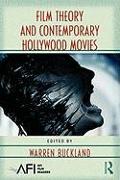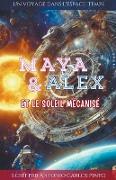- Start
- Film Theory and Contemporary Hollywood Movies
Film Theory and Contemporary Hollywood Movies
Angebote / Angebote:
The hugely successful and ambitious volume Film Theory Goes to the Movies (Routledge, 1993) redefined and transformed the discipline of film studies. It broadened and refocused the theoretical analysis of film (up to that point limited to classical Hollywood, European art cinema, and the avant-garde) to include contemporary popular films from the US. This "sequel" wants to demonstrate that film theory continues to be relevant to the critical examination of contemporary American film. More broadly, it argues that theory still has a role to play in film studies.The editor's introduction will examine the nature and current state of film theory from a general perspective. The contributors, while beginning with the general, will work from specific theories to examine a contemporary film (or small group of films) that has had a significant impact on movie audiences and has reshaped contemporary American cinema.In their chapters, the contributors demonstrate that they go to the movies with a healthy, pluralistic attitude. They propose:A renewal of theory by making it more specialized or precise (Deleuzian film theory, 'New Lacanian' film theory), Piecemeal theorizing - theorizing delimited to a specific dimension of film (film and trauma, film and emotion, unreliable narration, sound design), Using theory to identify new trends in American cinema (Neo-Baroque filmmaking, digital cinema's creation of a post-human world, gay and lesbian themes in mainstream cinema, adapting video games to the big screen), Supplementing speculative propositions with empirical generalizations (audience research, statistical style analysis), Using economic theory and industrial analysis to identify new and significant production and exhibition practices in contemporary Hollywood (Schatz's contribution), Or theory can stay at home, turn in on itself and question the enterprise of film interpretation (Elsaesser on the hermeneutic enterprise). Through theory, film studies has become a normalized discipline with its own distinct problems to solve and methods to solve them. Although energy is still occasionally spent on one school criticizing another, each currently spends more time carrying out the most positive, rewarding and engaging aspect of film theory: generating precise and reliable knowledge on significant films (and the cinema generally) from its own perspective. This volume offers a representative sampling of current research generated by both young and established film scholars from the different schools of thought currently being practiced in film studies.
Folgt in ca. 15 Arbeitstagen




